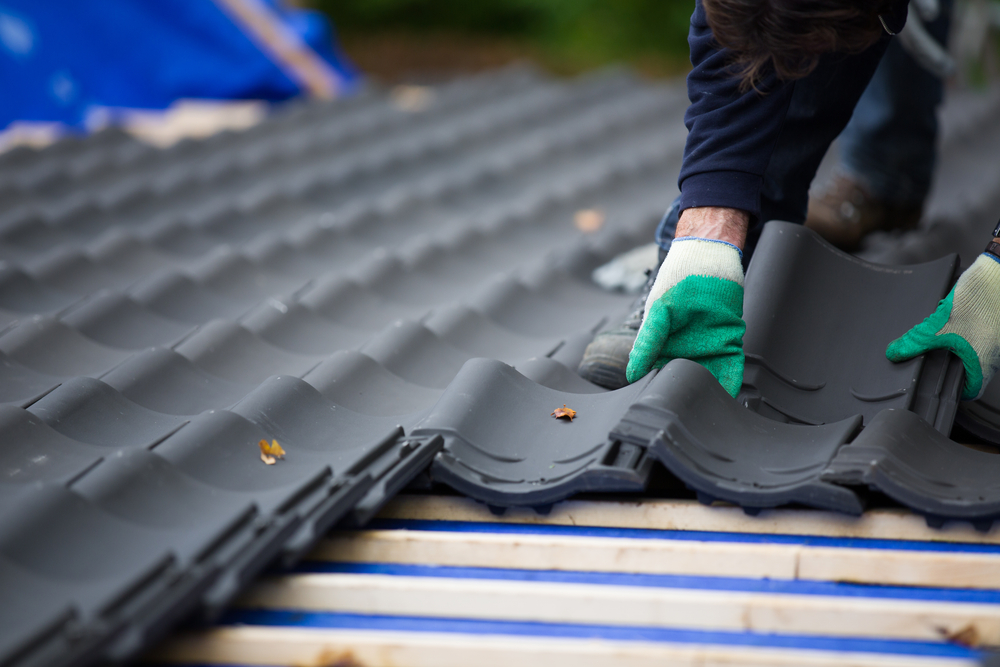Concrete tile roofing is an available material for both commercial and residential roofing projects. Colorado homeowners seeking the look of tiles for their roofs may benefit from the durability and weather resistance that concrete tile roofing has to offer.
Here, we’ll explore the ins and outs of concrete tile roofing. With these tips, we can help you determine whether or not concrete roof tiles are right for your Colorado home.
What Are Concrete Roof Tiles?
Concrete roof tiles are constructed from water, sand, and cement. These materials are shaped using heat and pressure. Concrete tiles may also be finished with some type of coating for both protective and aesthetic purposes. To achieve a specific look, concrete tiles may also be designed to mimic other roofing materials, such as stone, slate, wood slate, or clay tiles.
To suit all different homes, concrete roof tiles can be either smooth or textured, and the edges may be straight or jagged. So, while concrete roof tiles aren’t a traditional choice for residential roofing, they can offer several benefits to Colorado homeowners.
What Are The Benefits of Concrete Tile Roofing?
Concrete tile roofing can benefit Colorado homeowners in more ways than one. The main benefits of this roofing option include durability, weather resistance, and energy-efficiency.
Durability and Weather Resistance
Concrete tile is one of the most long-lasting roofing materials available. It provides remarkable longevity that can save homeowners money in the long run with fewer repairs.
When concrete tile roofing is well-maintained, it has a lifespan of up to 50 years. Concrete roof tile manufacturers may offer 50-year warranties, which is far longer than the typical warranty for roofing materials like asphalt and metal.
Concrete Tile Roofing in Colorado Weather
The weather in Colorado can involve snow, hail, rain, wind, and extreme temperatures. Concrete tile roofing is equipped to handle all of these conditions with its exceptional weather resistance.
Wind uplift can be a major concern during storms. Concrete tiles are highly resistant to wind uplift and will stay put throughout the harshest of storms.
Energy-Efficiency
Concrete tiles are an energy-efficient roofing choice. One of the key reasons for this is the ability of concrete to insulate your home. With effective insulation from concrete roof tiles, your home’s heating and cooling systems can operate more efficiently.
Additionally, many concrete roof tiles are reflective. With a reflective roofing material, your home won’t absorb as much heat from the sun and will stay cooler. Colorado receives intense sunshine in the warm summer months, so reflective concrete tiles can help lower the burden on your air conditioner.
What Are The Drawbacks of Concrete Tile Roofing?
While concrete tile roofing has several positive attributes, homeowners should consider the downsides of this roofing material before scheduling a roof installation.
Price
Concrete tiles are a pricy roofing material. The material itself and the cost of installation can stack up to tens of thousands of dollars. So, the upfront cost of concrete tile roofing may exceed homeowners’ budgets. Especially with the large variety of affordable roofing materials available today, it’s easy to see why homeowners may pass over concrete tile for their Colorado roof replacement.
But, when you consider its longevity, concrete tile roofing provides cost-efficiency over time. As a long-lasting roofing material, it can save you from the cost of a roof replacement in a decade’s time, which can cost several thousand dollars.
Water Absorption
Concrete tiles have a relatively high degree of water absorption. This puts concrete tile roofing at risk for water mildew and stains, which can diminish the appearance of your home. Proper maintenance is required to avoid this issue, so concrete tiles often require more extensive maintenance than other types of roofing materials.
Weight and Installation
Concrete tiles are an undeniably heavy roofing material. Especially when related to asphalt, metal, and clay, concrete tiles add a large amount of weight to your home.
To support the immensity of concrete roofing, your roofing contractor may need to structurally adjust your home to accommodate the added weight. Structural adjustments to your home can be both pricey and time-consuming. So, many homeowners opt for a different roofing material with a less involved installation process.

